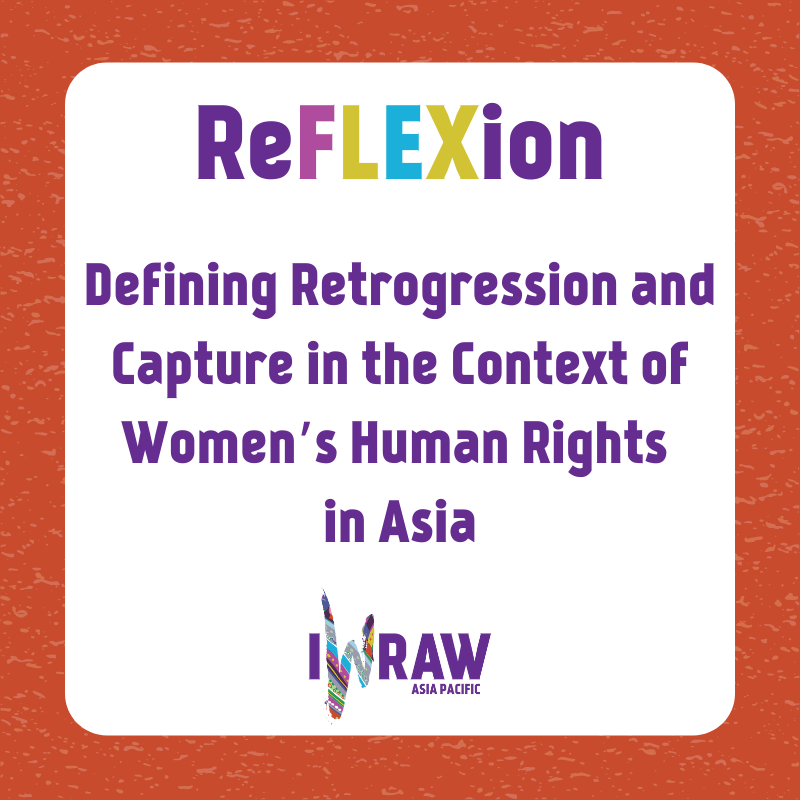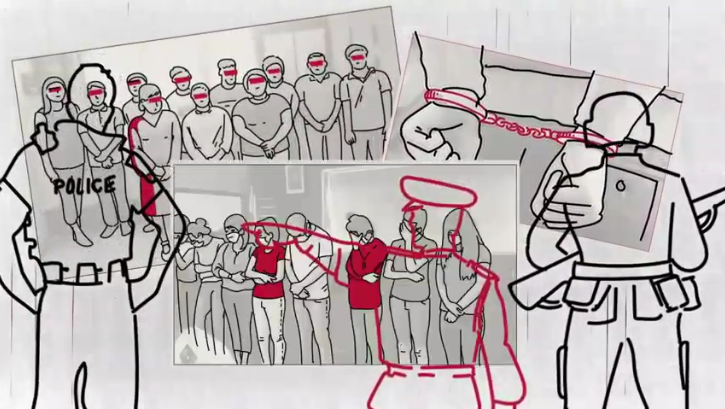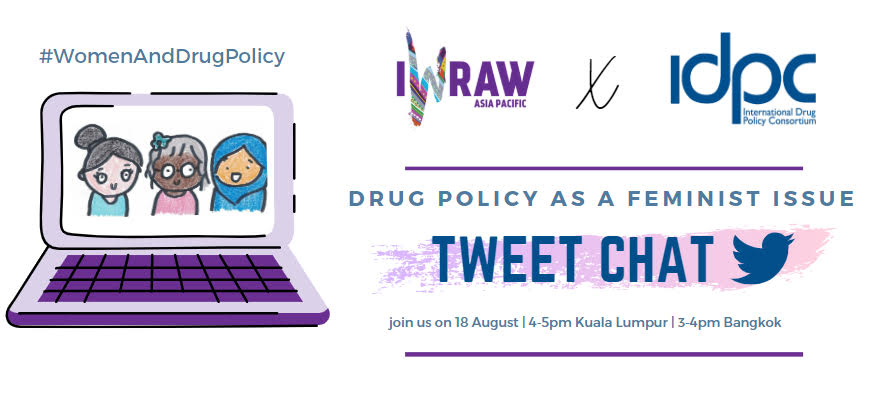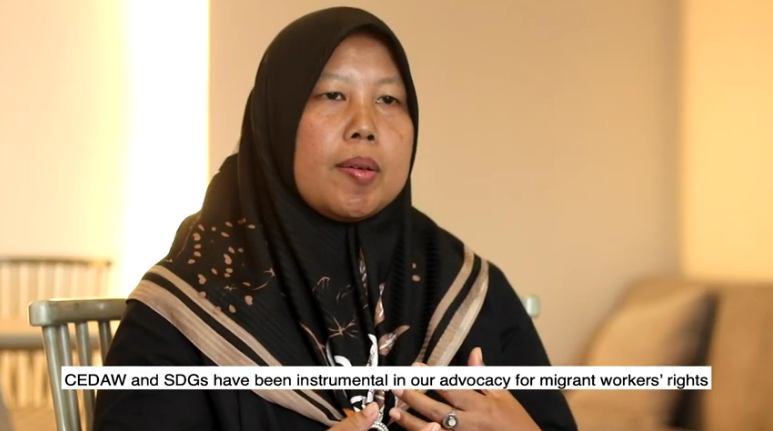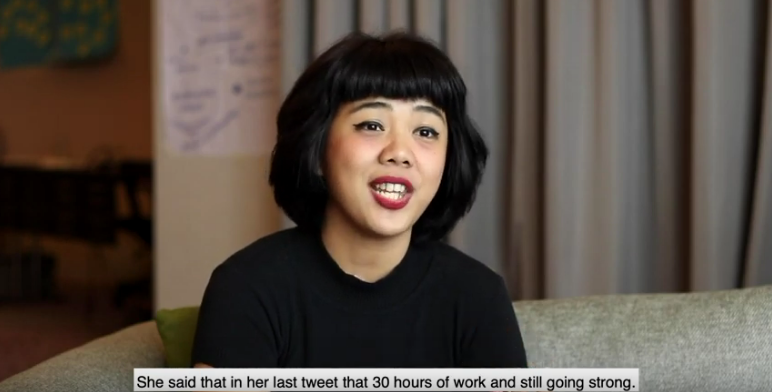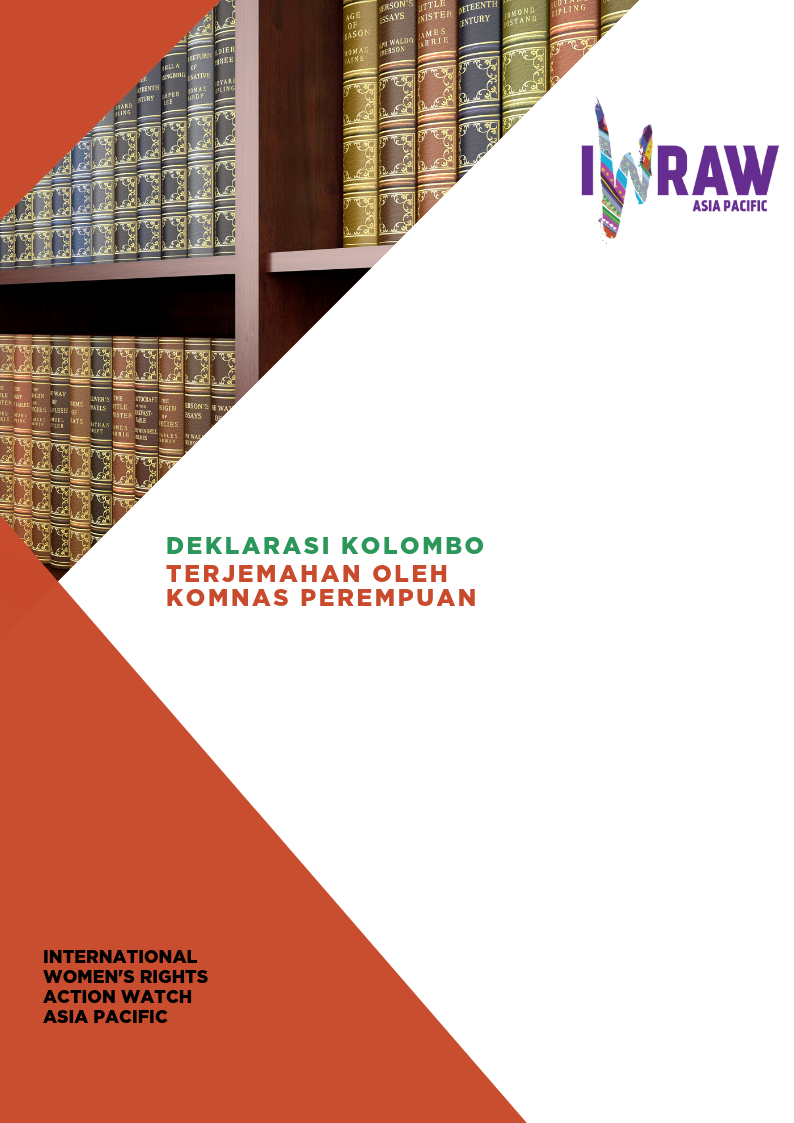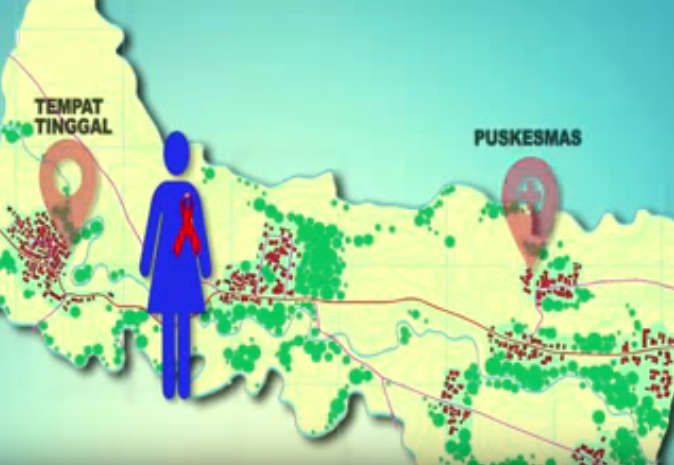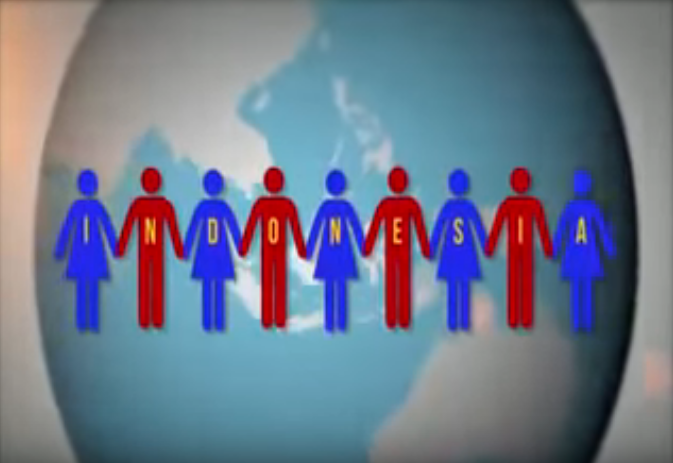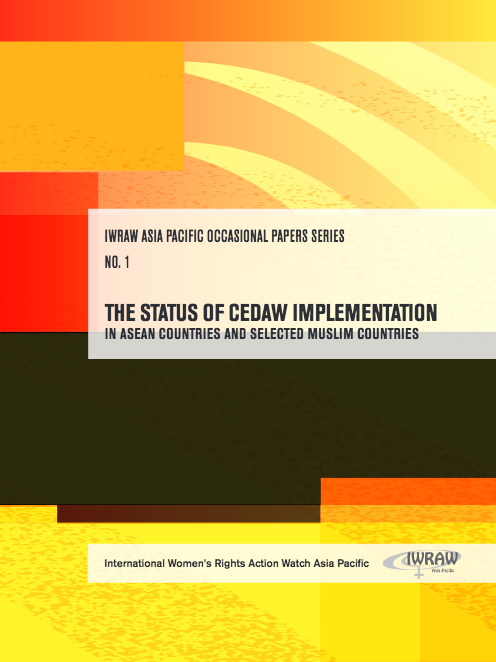Feminist Learning Exchange: Defining Retrogression and Capture in the Context of Women’s Human Rights in Asia (FLEX)
April 2022
The Feminist Learning Exchange: Defining Retrogression and Capture in the Context of Women’s Human Rights in Asia (FLEX) aims to consolidate feminist knowledge and analyse the social, political, economic and legal context of women and marginalised groups organising to claim their rights; and to understand how women’s rights groups advocate for the rights of marginalised […]
Read MoreDecriminalise Sex Work
March 2021
The full decriminalisation of sex work is recognised globally as being essential to ensuring the safety, security, and dignity of sex workers. In this video, members of the Asia Pacific Network of Sex Workers (APNSW) from various parts of South and Southeast Asia talk about the impact of criminalisation on the lives and rights of […]
Read MoreIntersectional Feminism and the ‘War on Drugs’
August 2020
In collaboration with IDPC Asia, IWRAW Asia Pacific hosted a tweet chat on women and drug policy, featuring NGOs and experts with particular focus on South and Southeast Asia. The discussion has been compiled into a Twitter Moment for easy reading.
Read MorePreventing Human Trafficking of Indonesian Migrant Workers
2019
Maizidah Salas of Serikat Buruh Migran Indonesia (SBMI) describes her organisation’s activities: supporting children of migrant workers, empowering victims of trafficking, and pressing for change from the private sector to prevent further exploitation of migrant domestic workers. Duration: 4:50 Subtitles: English
Read MoreMental Health as a Labour Right
2019
Ellena Ekarahendy, chairperson of SINDIKASI, describes issues facing flexible workers in Indonesia, including precarity and overwork, and strategies to push for legal change. Duration: 6:06 Subtitles: English
Read MoreDeklarasi Kolombo
June 2019
Pada tanggal 20-22 Maret 2019 di Kolombo, Sri Lanka, IWRAW Asia Pacific bekerjasama dengan The Law and Society Trust telah mengadakan Regional Judicial Colloquium dengan tema Akses Keadilan dan Hak-hak Perempuan untuk Kesetaraan dalam Keluarga. Seminar ini dihadiri oleh para hakim, praktisi hukum, komisi HAM, dan aktivis perempuan dan anak di wilayah Asia Selatan dan […]
Read MoreCEDAW: Prinsip Non Diskriminasi
2015
Prinsip Non Diskriminasi merupakan salah satu prinsip dari tiga prinsip dasar konvensi Penghapusan Segala Bentuk Diskriminasi terhadap Perempuan (CEDAW). Prinsip ini perlu dipahami bersama karena bentuk diskriminasi terhadap perempuan sangat beragam, dari diskriminasi langsung, tidak langsung, masala lalu, dan lain-lain. Video oleh CEDAW Working Group Indonesia, terinspirasi oleh animasi video CEDAW oleh IWRAW Asia Pacific. […]
Read MoreCEDAW: Prinsip Kesetaraan Substantif
2015
Video infografis Prinsip Kesetaraan Substantif ini merupakan rangkaian dari tiga video infografis tentang prinsip-prinsip dalam Konvensi CEDAW atau Konvensi PBB tentang Penghapusan Segala Bentuk Diskriminasi terhadap Perempuan. CEDAW Working Group Indonesia (CWGI) dengan didukung oleh UN Women membuat video ini untuk mempermudah semua memahami instrument Hak Asasi Manusia (HAM). Terinspirasi oleh animasi video CEDAW oleh […]
Read MoreCEDAW: Prinsip Kewajiban Negara
2015
Prinsip Kewajiban Negara merupakan salah satu prinsip dari tiga prinsip dasar konvensi Penghapusan Segala Bentuk Diskriminasi terhadap Perempuan (CEDAW). Prinsip ini perlu dipahami bersama terkait dengan kewajiban Negara dalam menghormati, memenuhi dan melindungi Hak Asasi Perempuan. Video oleh CEDAW Working Group Indonesia, terinspirasi oleh animasi video CEDAW oleh IWRAW Asia Pacific. Tempoh: 5:19 Sari kata: […]
Read MoreThe Status of CEDAW Implementation in ASEAN Countries and Selected Muslim Countries
2004
IWRAW Asia Pacific Occasional Papers Series, No. 1. 36-page paper in PDF format, written by Shanthi Dairiam and based on research carried out by Rea Chiongson and Bandana Shrestha. Covering Egypt, Iraq, Jordan, Maldives and Tunisia as well as ASEAN, the paper looks first at the reservations made by States parties upon CEDAW ratification or […]
Read More

